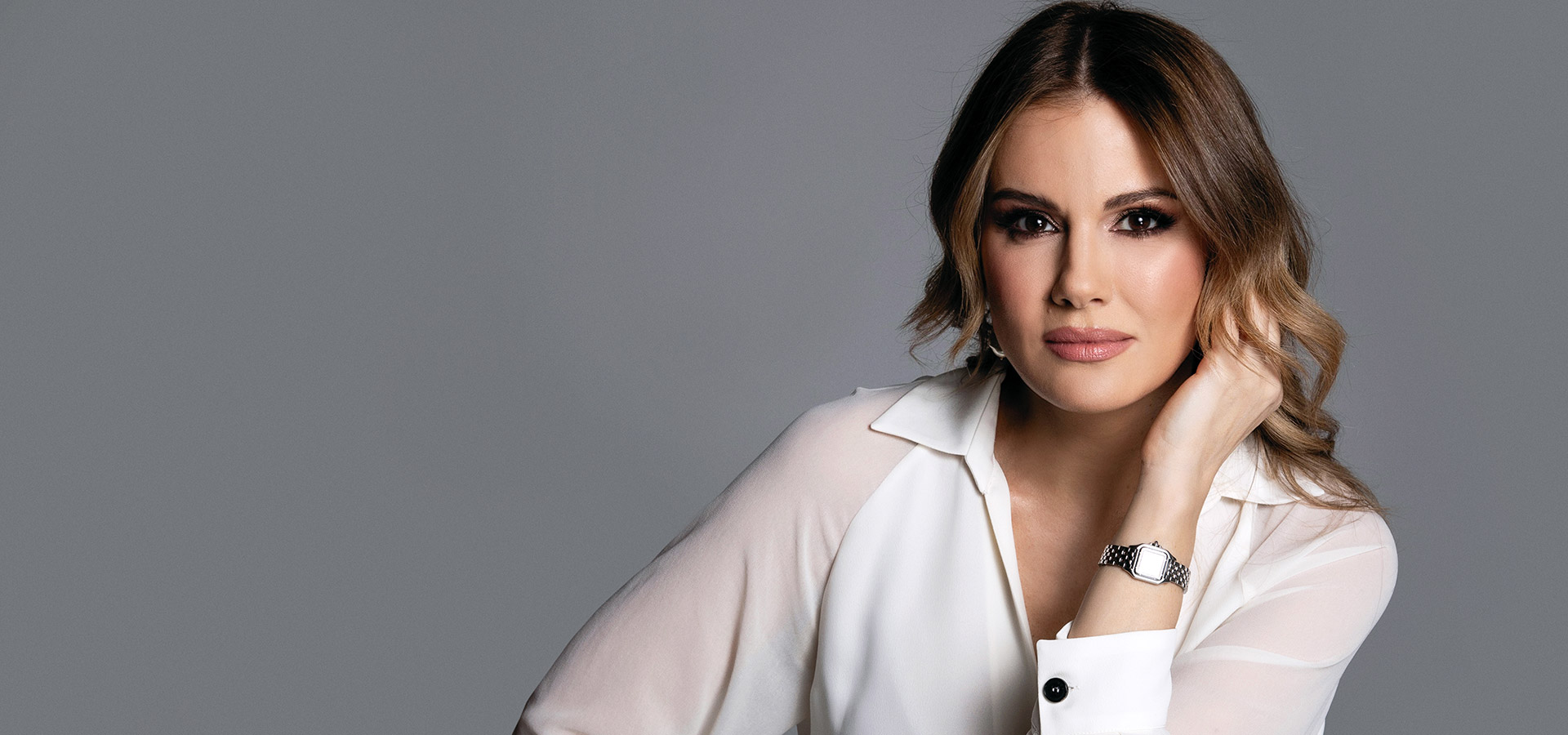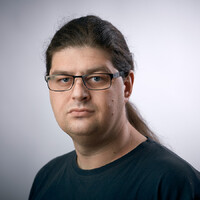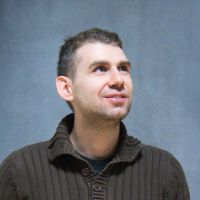Maja Nikolic: From a little ballerina to a famous TV personality
With nearly 30 years of experience in front of the cameras, Maja Nikolić Japundža is one of our most recognizable faces on the small screen. This aspiring ballerina and host of the show "Među nama" on TV Nova reminisces about her memories of how, even as a child, she found herself in an incredible way on TV Sarajevo, talks about the terrible circumstances that led her to leave her hometown, and reveals how she began her successful career.
You were born in Sarajevo. What do you remember about your childhood?
I come from what I would call a typical family. At that time, we all lived similarly. In other words, there were no differences in upbringing between me and the children in the neighborhood, or at least I wasn't aware of any.
In front of our building, there was a kindergarten, whose fenced yard was our playground. So, my mom always had an eye on me, and I could never ignore her calls to come home.
All in all, growing up was peaceful, happy, in a nice family, and a nice environment.
It's interesting that you had your first television experience while still in elementary school.
It happened in an unbelievably and, from the parents' perspective, frightening way. One day, a crew from Television Sarajevo came to our schoolyard and literally selected children who were appealing to them for shooting the intro of a children's show. Among the chosen kids was me. They put all of us in a van and took us to the studio.
When we arrived at the TV station, I felt a bit disappointed. All the kids, except me, were given special outfits for the shoot. Although the production team decided that the cute dress I was wearing was perfect for the shoot and there was no need to change, I felt a slight sadness. However, that feeling went away after they did my makeup.
After that, the shooting started, and they asked me to pout, smile, and giggle. In the end, I even got paid for that engagement in the form of coupons for the "Sarajevo" department store.
When I returned home, I was lively and cheerful, but then I realized that my parents were beside themselves with worry. Yes, you guessed it right, they didn't know where their little Maja had gone - someone had just mentioned that they had taken me and some other kids in a van from the schoolyard. They calmed down somewhat when they heard it was for television, but that definitely wasn't much comfort. Honestly, I can't even imagine myself in their shoes today.
So, those were my television beginnings.
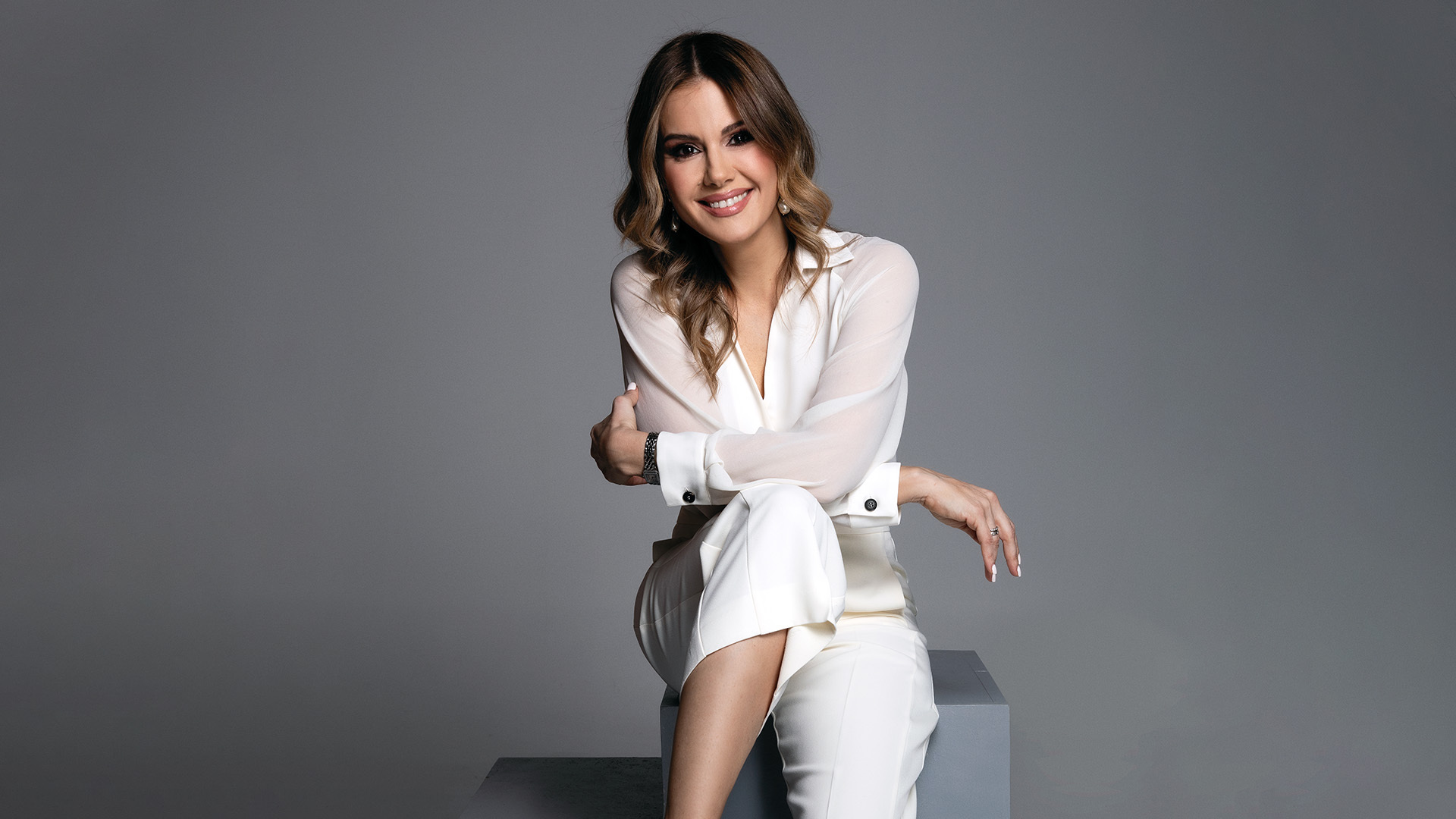
Photo: Miloš Nadaždin
Did you continue to appear on the small screen?
Yes, but as part of a ballet troupe led by the wonderful Gordana Magaš, who was the Sarajevo equivalent of Lokica Stefanović. Our group performed on various television shows, such as "Svakog petka ispočetka" with Zijah Sokolović and Seid Memić Vajta. Moreover, we accompanied serious performers like Neda Ukraden, Kemal Monteno, and many others.
So, you had a very interesting upbringing.
Yes, but it all changed with the start of the war. Suddenly, everything changed, and we came to Belgrade.
What do you remember from those days?
Belgrade was salvation, Belgrade was a challenge. With only a thousand marks in our pockets, we arrived in the capital when I was just shy of 18, thinking we would soon return. Those were the years of sanctions and displacement, the worst moments for the residents of Serbia and Belgrade. We literally had nothing of our own: from a roof over our heads to a job.
I dare not even imagine stepping into my parents' shoes back then. In a word, it was a catastrophe. I remember that we only had winter clothes with us, so when it got warmer, we had nothing to wear. I remember my Elaković relatives on my mother's side, who initially provided us with a home. I also remember my dad's wonderful colleagues from Energoprojekt, who did their best to make us comfortable here.
Actually, my main memories from that time are related to people - wonderful people who made an effort to make things somewhat bearable for us in those dreadful circumstances.
Did you have the opportunity to find a job in television here?
Initially, life in Belgrade had nothing to do with anything interesting, let alone television. I was studying and, at the same time, working with my mom in a boutique in the "Piramida" shopping center. Then, in 1996, an advertisement appeared in which the newly opened BK Television was looking for new faces. At that time, Maja Žeželj, Anja Ranković, the late Srđan Đurić, Nataša Lekić, and many others were already working there.
I applied. Among the applicants, I had the company of Nataša Miljković, Maja Vidaković, and Branka Nevistić. After a grueling casting process, out of thousands of applicants, only about twenty people were accepted, and I was among them.
That's when I met Aleksandar Tijanić, the man who paved the way for my career to a large extent. To be honest, I don't know what he saw in me. Unlike others, I knew nothing about politics, and during the casting, they asked us a lot of questions about it. In other words, apart from my childhood experience in front of the camera, my knowledge was virtually nonexistent. However, he saw something in me, as if he had some sixth sense. After we did a test shoot, everyone was thrilled, despite my crazy stage fright.
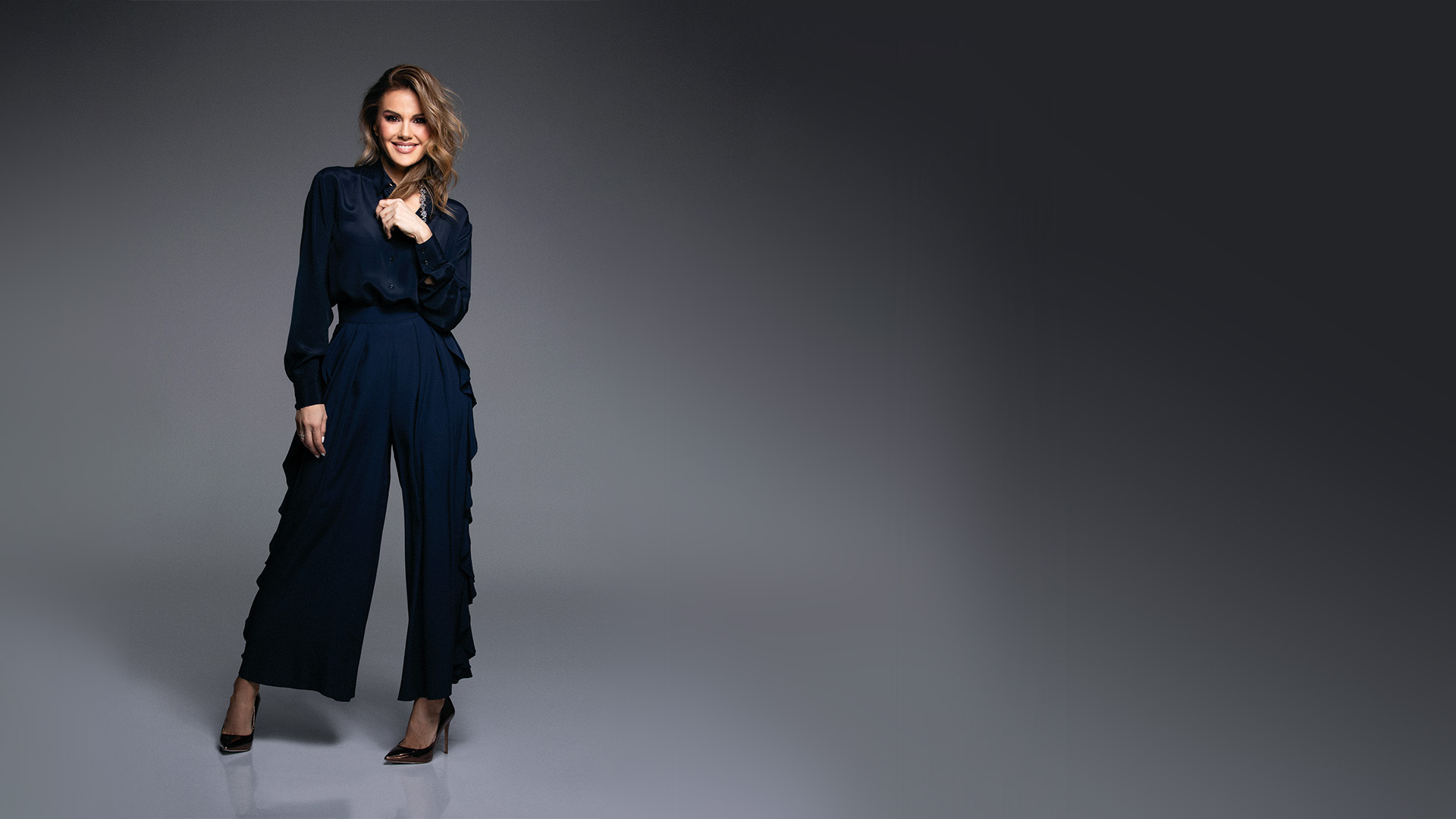
Photo: Miloš Nadaždin
How were your first days in television?
Unlike my colleagues, my beginnings in television were not glamorous at all. Nataša got to host a show, Branka started hosting Telefakt. Everyone was doing something, but I was left in the background.
One of my first tasks was to prepare information for the morning shift. The job boiled down to arriving at work around half past three in the morning and then calling various places like maternity wards to inquire about the number of newborn babies, the power distribution company to find out about any outages and network issues, and so on. In other words, everything you can get in a few seconds today - I had to call around in the early morning.
So, for the first couple of years, I worked as a journalist, and then on December 29th, I received a "promotion" to become the editor of what we called "small news" or "headlines." I was thrilled, but then they told me that my first shift would start on December 31st at 8:00 PM. In short, they "assigned" me to work on New Year's Eve.
You became famous as a TV personality through the show "Portret."
Exactly. It was a short format, lasting 7-9 minutes, and thanks to "Portret," I learned everything - from how to prepare for an interview to being concise and ultimately conducting interviews.
At the time, it was a real challenge to prepare for a guest. I had to go to Radio Belgrade and request a dossier on a certain public figure. There, you would receive a pile of papers with newspaper clippings, and if you caught them in a good mood, they would make photocopies for you; otherwise, you were forced to transcribe them. Finally, you had to type it all up, save it on a diskette, and take it to the television so it could appear on the teleprompter.
Anyway, my adventure at BK Television lasted for a good ten years. After that, I moved to RTS at the invitation of Aleksandar Tijanić, where I also spent a decade.
What was it like working in such a media institution like RTS?
Incredible. If you're in this line of work, you have to experience it. It's a powerful institution that brings recognition. I gained mine primarily through the Morning program, and later with Beovizija and the New Year's program.
It was truly a wonderful experience as long as Tijanić was with us. When he passed away, everything became meaningless to me. There was no longer a person whose respect I strived to earn. Because whenever you worked with Aleksandar Tijanić, you always felt the need to earn his respect, and that was a big challenge for everyone.
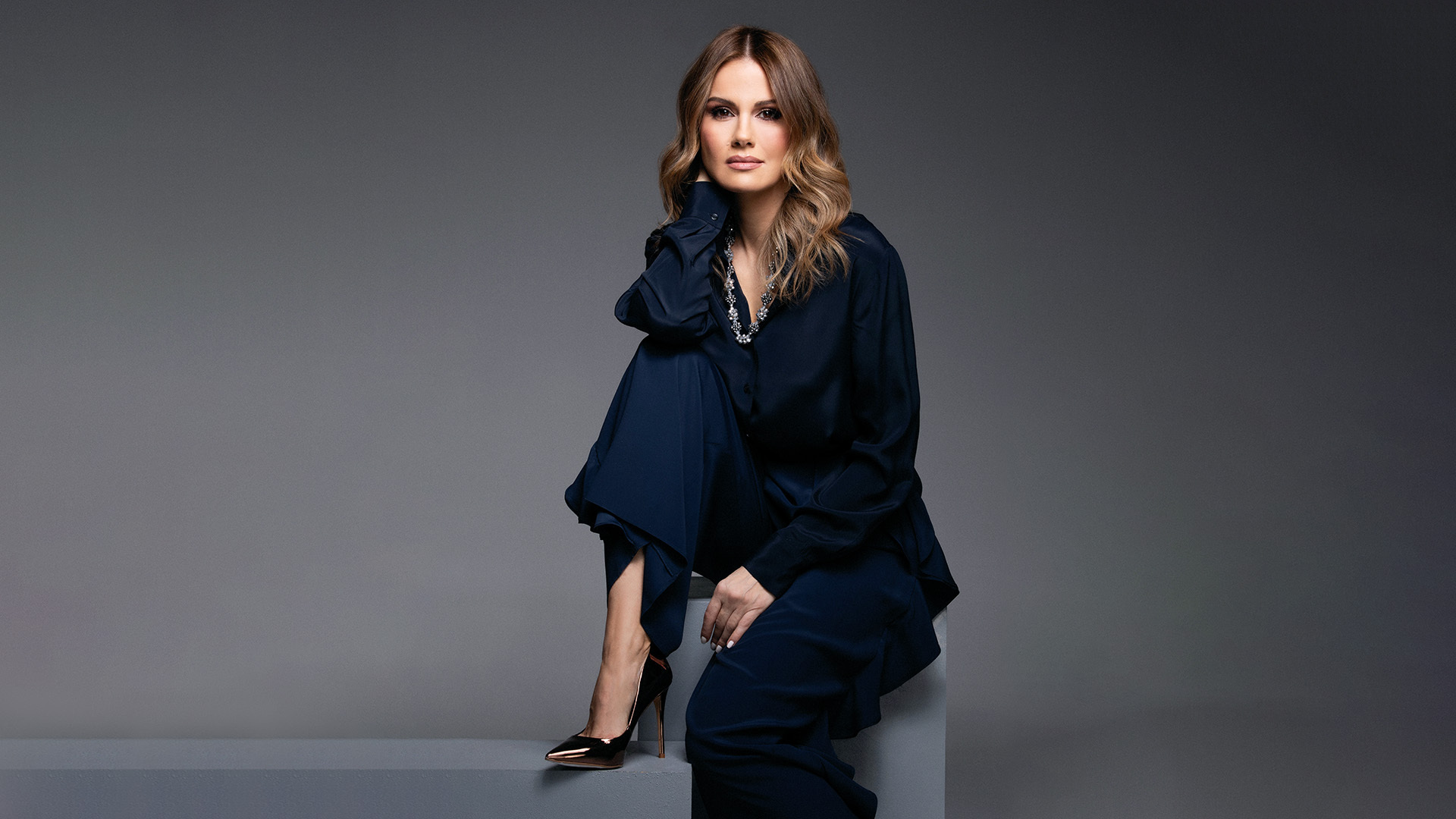
Photo: Miloš Nadaždin
After nearly 30 years in television, what keeps you motivated?
Challenge. Even now, in these mature years, I still have a need for dynamism, to avoid falling into a routine. That's why I love it here on TV Nova. The whole team was brought here because they know how to do their job.
A multitude of guests have appeared on your shows. Could you identify a common trait among all of them?
The hosting profession shatters the illusion that there are special people. What they all have in common is that they are where they are because they are talented and extremely hardworking. They are all normal people, and it's my privilege to have met and interviewed some legends.
In the meantime, you've become the face of major brands. How did that come about?
It's the result of my presence on television and in private life. At one point, I collaborated with an Austrian tea brand, and the decision to make me their face was influenced by research conducted in numerous focus groups. When I heard that, I felt a boost in my self-esteem because these big companies meticulously pay attention to every detail. They don't want scandal-makers or questionable and controversial figures.
On the other hand, I can't say that I live my life in a way to secure such collaborations. Not at all. My life is what it is. And when it becomes recognized as suitable for engagement by respected and major brands, I won't lie; it's a great compliment.
You've spent more of your life in Belgrade than in Sarajevo. Do you feel like a Belgrader today?
If being a Belgrader means loving Belgrade, living in it, respecting it, starting a family, giving birth to three children, and never undermining what it should represent - then yes, I am a Belgrader. I just think that Belgrade should return to its roots, stop being primitive, stop tearing down greenery, and avoid excessive concrete.
However, I am still a Sarajevan. I can never ignore how and on what I was raised, from music to humor... The spirit of the city is still a significant part of me.
What is it like being a mother of three in Belgrade today?
I'm no different from any other mother. Every parent wants only the best for their child. Although the same danger doesn't loom over us as it did when I was growing up, today's times are challenging in their own way. Unfortunately, the nature of my job reminds me of that every day. So, the concern is constant. But that's where my mom comes in to comfort me. She says, "Take it easy; you'll see what real worry is when you have grandchildren!"
You started your career as a ballerina. How long has it been since your last ballet performance?
It's been a hundred years! Now I just jump around at concerts, dance around the house with headphones on, and enjoy turning up the music to the max in the car.
What are your plans for the future?
They are all related to my current job. At TV Nova, I've built a great editorial team that makes me prouder every day. I work with wonderful and dear people who are excellent at what they do. There is a great responsibility on all of us - to keep the show "Među nama" watched and relevant and not to disappoint the viewers who regularly congratulate us on our impartiality on the street.




 5 ℃
5 ℃

